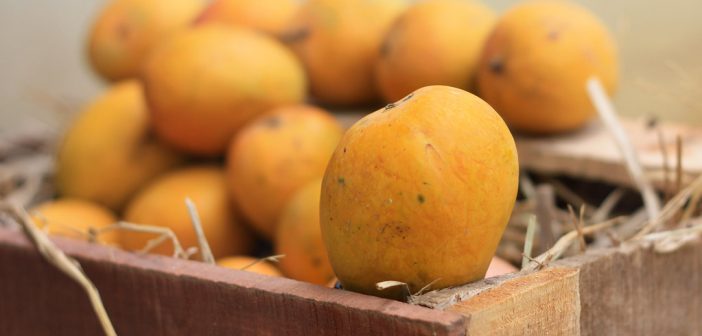The Alphonso mango, hailing from India, is not just a fruit; it’s a cultural icon, a taste of summer, and a symbol of luxury. Its rich history, unique flavor profile, and economic significance make it a true “King of Fruits.” Let’s embark on a journey to explore the Alphonso’s fascinating past, delve into its economic importance, and discover the delightful world of its variants.
A Legacy Rooted in Royalty
The Alphonso’s origins are shrouded in a veil of time, but legend suggests Portuguese explorers introduced the fruit to Goa in the 15th century. From there, it found its way to Ratnagiri, a coastal district in Maharashtra, where its unique flavor blossomed under the perfect combination of climate, soil, and salty air. The fruit’s name is believed to be derived from Afonso de Albuquerque, a Portuguese viceroy, although some claim it might have originated from a local village named Alphonso.
Regardless of its exact origin story, the Alphonso soon captured the hearts (and taste buds) of Indian royalty. The Maratha Empire, known for its discerning palate, particularly favored the Alphonso. Chhatrapati Shivaji, the revered Maratha warrior king, is said to have been a great admirer of this fruit. This royal patronage cemented the Alphonso’s reputation as a fruit fit for a king, a legacy that continues to this day.
A Symphony of Flavor and Aroma
The Alphonso’s allure lies not just in its history, but in its sensory experience. Its vibrant golden yellow skin encases a juicy, fibrous flesh with a sweetness that is perfectly balanced with a touch of tartness. The fruit boasts a distinct aroma, often described as a blend of floral and citrus notes. This unique flavor profile sets the Alphonso apart from other mangoes, earning it the coveted Geographical Indication (GI) tag, a certification that recognizes its distinct origin and quality.
Beyond Taste: The Economic Powerhouse
The Alphonso isn’t just a symbol of luxury; it’s a significant contributor to the Indian economy. The Alphonso mango industry is estimated to be worth over ₹1,000 crore (US$1.2 billion) annually. Cultivation generates employment opportunities, particularly in Ratnagiri and Devgad, the two regions renowned for producing the best Alphonsos. Additionally, it fuels a robust export market, with countries like the Middle East, Europe, and the United States vying for a taste of this prized fruit.
A Family of Flavors: Exploring Alphonso Variants
While the Ratnagiri Alphonso reigns supreme, other Alphonso variants tantalize taste buds across India. Here are some notable mentions:
-
Devgad Alphonso: Hailing from the Devgad region, this variant shares many similarities with the Ratnagiri Alphonso, but some connoisseurs claim it possesses a slightly sweeter flavor.
-
Pairi Alphonso: Cultivated in Gujarat, the Pairi Alphonso is known for its intense sweetness and distinct aroma.
-
Mallika Alphonso: This Alphonso variant, grown in Karnataka, boasts a vibrant orange peel and a slightly oblong shape. It offers a delightful balance of sweetness and acidity.
-
Dasehri Alphonso: A unique hybrid, the Dasehri Alphonso combines the sweetness of the Alphonso with the vibrant orange color and fiber of the Dasehri variety.
These variants, along with others like the Kesar Alphonso and Totapuri Alphonso, showcase the rich diversity within the Alphonso family, offering a range of flavors for every palate.
Cultivating the Future of the Alphonso
The Alphonso’s future faces potential challenges like climate change, increasing pest attacks, and the need for sustainable farming practices. However, ongoing research into improved cultivation methods, integrated pest management strategies, and the adoption of organic farming practices offer hope for a flourishing future.
Conclusion
The Alphonso mango is more than just a fruit; it’s a cultural treasure, an economic driver, and a testament to India’s rich agricultural heritage. Its unique flavor profile, captivating history, and economic significance ensure its place as the undisputed “King of Fruits.” As we celebrate the Alphonso, let’s also acknowledge the dedication of farmers who cultivate this prized fruit and work towards ensuring a sustainable future for this national treasure.






